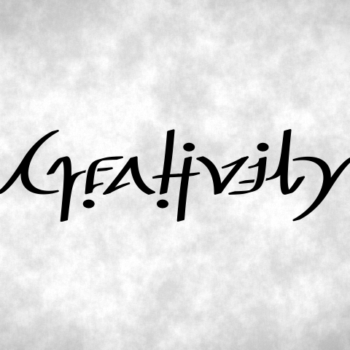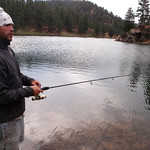The baton is raised. Anticipation fills the room, audience and performers alike. A small cough comes from the floor. Omnipotent eyes sweep over the entire group from behind the lectern supporting the page on which is written what we, as artists, are about to express. My heart begins to pound as I prepare my fingers, imagining the correct embouchure and pitch. The slightest movement of the wand is detected; in unison, we breathe. Its peak is reached, and we are ready. It reaches the lowest point, the downbeat. Then, it happens. My art takes tangible, audible, appreciable shape. The notes come alive, and I with them.
This experience is part of what I live for. It is the amazingly tense atmosphere that introduces every performance I make, alone or with my adoptive family (which most people would call an ensemble or an orchestra). I find solace in the singing tones of violins, the solid timbres of bassoons, and the sweet brassy voices of the euphoniums. Clarinets serve as my counterpart, and trumpets carry the melody as I adorn the performance with buttery harmony or rapid lines of chromatic notes. Trombones and tubas provide the base upon which our entire performance is staged; the percussion keeps impeccable time and unifies us with a single sound. Music is my art, my passion, and my language. It is what I use to convey my feelings and my dreams.
Music is my art, my passion, and my language. It is what I use to convey my feelings and my dreams.
I am a flute player. Music currently defines me, and has done so since I began playing at age ten, as a naive beginner flutist. My tone was tinny and unrefined. I cracked notes. My fingers moved as slowly as a caterpillar along a branch, and I couldn’t even play above the middle register. But from the very beginning, there was passion. I could feel it; it didn’t matter that I couldn’t play Jingle Bells without much difficulty. I can remember being proud of myself for playing Dreidel, Dreidel and Hot Cross Buns. But more importantly, I could tell, even then, that I had discovered something which would become a significant part of my identity. I grew with my playing style, traveling to honors festivals in the higher middle school grades, meeting people from the greater musical community for the first time, finding myself utterly impressed to discover people like me in their love of this art. I continued to play in high school, ranking as the highest scorer in the District Three Honors Festival, playing in the Portland Youth Wind Ensemble, and seating in the Maine All-State Band in my junior year. I am still improving even in this year; I currently play as the principal flutist in the Portland Youth Wind Ensemble and Portland Youth Symphony Orchestra and I am preparing auditions for District Three and All-State.
Such is my progression throughout my musical experience. What really attracts me to music, however, beyond the accomplishments I have made and the friends I have found, is how honestly I can communicate using the art form. Words are finite and limited, and though they are far-bounding in their expression, they cannot encompass the raw emotion and passion I can convey while playing. The chords and melodies, harmonies and countermelodies, sequences and even pregnant pauses all come together to spell out a message intended by the composer; but even that is not the extent of music’s communicative power. Every musician brings to his or her audience a different interpretation of what non-musicians might perceive as simple ink spots placed strategically on a page, through his or her unique playing style and passion. Like all musicians, I have found my own style and passion. It has taken me more than seven years to find my true voice, but now learned it will remain with me for the rest of my days.
Once, I admitted to a close friend that my highest goal musically was to make someone cry. This is still my goal, and one day I hope to achieve it. In order to do that, I must refine my language even further, until I can show everything I have learned and everything music means to me. It is how I speak the words of my heart. Whether playing Faure’s “Fantaisie”, Mahler’s “Symphony No. 3”, or “My Heart Will Go On” (yes, from Titanic), I will always be defined by music, and it will always help me speak what my words cannot say. Musica est mei animae: music is my soul.








